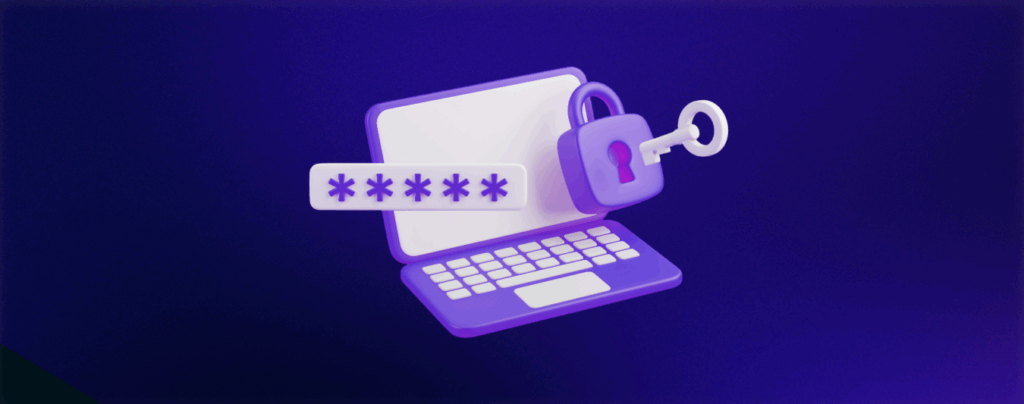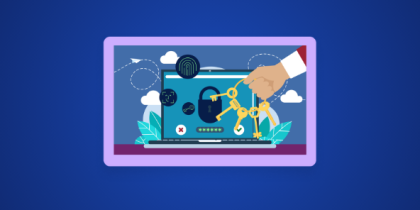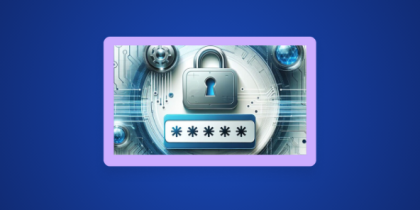Human behavior continues to be the weak link. A shocking number of users still set passwords like “abc,” “123456,” or “password.”
At first glance, choosing something simple feels harmless. It’s easy to type, impossible to forget, and convenient across devices. But simplicity in passwords comes at a price: predictability. And predictability is exactly what cybercriminals thrive on.
In this guide, we’ll look at why using “abc” as your password is one of the worst decisions you could make, how hackers exploit it, and how you can keep and remember a strong password seamlessly.

Why Weak Passwords Put You at Risk?
Hackers don’t type guesses one by one; they use dictionary attacks. These tools pre-load massive lists of leaked passwords and run them against user logins. You can be sure “abc” is right at the top.
A glance at Reddit’s r/cybersecurity reveals this isn’t just theory. One post shared:
“I’ve been deep in password breach databases… ‘Dragon!2023’ vs. ‘purplechairfridgecoffee,’ guess which one appeared 47 times?”
Your credentials may be at risk.
Run a free email scan to see if your data has been exposed — no signup needed.
That little snippet highlights how predictable “strong” patterns can be. Now imagine “abc.” It’s practically screaming its way into hacker tools.
Even if “abc” somehow isn’t in a hacker’s wordlist, brute forcing doesn’t discriminate.
- A 3-character password—that’s all it is—melts in under a millisecond.
- An 8-character password with symbols? Maybe days or a couple of weeks.
- A 16+ character passphrase? That could take centuries with today’s hardware.
And yes, tools like Hashcat or John the Ripper are accessible to just about anyone. As one Redditor admitted:
“I tested my old password ‘cat123’ on Hashcat just for fun. It cracked in less than a second. Scary stuff.”
Rainbow tables are massive databases of pre-mapped hashes to plaintext. Since “abc” is a common string, it’s precomputed, meaning attackers don’t even need to compute it on the fly. They just look it up, like finding your address in a phonebook.
A study published in the Journal of Information Security and Applications confirms how quickly rainbow tables can expose short, predictable passwords, and yes, “abc” is one of the easiest.
Why People Still Use “abc” as a Password
Despite decades of security awareness campaigns, weak passwords remain widespread. Why?
- People don’t want to memorize complex strings.
- Outdated routers, IoT devices, and even some enterprise software still ship with “abc” or “admin” as the default password.
- Humans prefer short, memorable sequences. “abc” feels intuitive and cognitively effortless.
- Many assume hackers only target big corporations, not individual users.
Unfortunately, modern attackers don’t target individuals, they target patterns. And “abc” is the simplest, most predictable pattern of all.
Weak Passwords and Some Data Breaches of the Decade
It’s not just individuals. According to IBM’s Cost of a Data Breach Report 2023, the global average breach now costs $4.45 million. And more often than not, it starts with one weak password.
Facebook Security Incident (2019)
In 2019, it was revealed that Facebook had stored hundreds of millions of user passwords in plain text, some dating back to 2012. Many of those were weak patterns like “abc” or “qwerty,” which meant if an insider had gone rogue, the damage could have been catastrophic.
Twitter (X) Employee Hacks (2020)
In July 2020, high-profile Twitter accounts (Elon Musk, Bill Gates, Apple) were hijacked in a massive crypto scam. Reports later showed some employees used weak internal credentials, making it easier for attackers to break into backend tools.
Microsoft Exchange Server Attacks (2021)
Tens of thousands of organizations worldwide were compromised due to unpatched Exchange servers, but security researchers also found that many admins had set weak, guessable credentials. Attackers chained software exploits with brute-forced logins to gain persistence.
The “Mother of All Breaches” (2024)
In early 2024, cybersecurity researchers uncovered a data leak of 26 billion records, dubbed the “Mother of All Breaches.” The dataset included leaks from LinkedIn, Twitter, and smaller forums, riddled with reused and weak passwords like “abc,” “123456,” and “password.”
The AI & NLP Ways of Password Cracking
In recent years, cybercriminals have adopted AI and NLP-driven password guessing tools. Instead of random brute force, these systems learn from massive breach datasets.
- AI Password Guessing: Trained models predict the next most likely sequence based on human behavior. For example, “abc” often expands to “abc123” or “abcd.”
- NLP in Security Defense: On the flip side, cybersecurity systems use NLP to analyze login attempts, spotting suspicious language-based patterns (like keyboard walks: qwerty, asdf, abc).
Why Should Businesses Ban “abc” as Passwords?
Weak passwords aren’t just personal risks—they are corporate liabilities.
- Insider Threats: Employees using “abc” for shared systems expose entire organizations.
- Compliance Failures: Standards like NIST SP 800-63B explicitly discourage weak passwords. Non-compliance can result in fines.
- Supply Chain Vulnerabilities: Even one weak credential in a partner system can compromise a vendor network.
Forward-thinking companies enforce password blacklists to reduce risk at scale.
How to Keep Smarter Passwords
Creating smarter passwords isn’t about memorizing complex strings, it’s about making them harder for hackers, but easier for you to manage.
1. Passphrases
A string like “BlueSky!RunningHorse2025” is both secure and memorable. Longer length increases entropy exponentially.
2. Password Managers
PureVPN password manager generates and stores complex, unique passwords. You only need to remember one master passphrase.
3. Multi-Factor Authentication (MFA)
Even if your password leaks, MFA (via SMS, authenticator app, or biometrics) provides a second barrier.
4. Encrypted Vaults
Instead of storing “abc” on sticky notes, encrypted vaults protect credentials with end-to-end protection.
Frequently Asked Questions
Because it’s one of the simplest, most predictable sequences possible, hackers don’t even need advanced tools, “abc” is already in every cracking dictionary, making it one of the first things attackers test.
Not really. Variations like “abc123” or “abc!” are just as weak and are included in hackers’ wordlists. Cybercriminals anticipate these patterns.
Yes. Password managers generate unique, complex, and high-entropy passwords for every account. They also store them securely, so you don’t have to remember dozens of logins.
A VPN encrypts your internet traffic and reduces the risk of interception on public Wi-Fi. But it won’t save you from weak passwords. If your password is “abc,” a VPN can’t stop brute force or credential stuffing attacks.
Yes. Many organizations blacklist entries like “abc,” “password,” or “123456.” Microsoft, Google, and enterprise systems actively reject these as login credentials because they’re too easy to break.
You can check through PureVPN dark web monitoring if any of your data is leaked. If your email shows up in a breach, change all affected passwords immediately.
The gold standard is a long passphrase (16+ characters) that mixes random words, symbols, and numbers. Store it in a password manager and pair it with multi-factor authentication (MFA) for maximum protection.
Absolutely. If “abc” was your go-to password, assume it’s already in the hands of attackers. Update every account with unique, strong passphrases, and enable MFA wherever possible.
Cybercriminals most commonly gather personal information from data breaches of large companies and by scraping public social media profiles. These sources provide a rich trove of details like email addresses, passwords, birthdates, and personal interests.
Don’t Keep Predictable Passwords!
Using “abc” as your password is like locking your front door with a toy lock. It may feel convenient, but to a hacker, it’s an open invitation.
With PureVPN password manager, multi-factor authentication, and stronger habits, you can protect yourself without sacrificing convenience.









